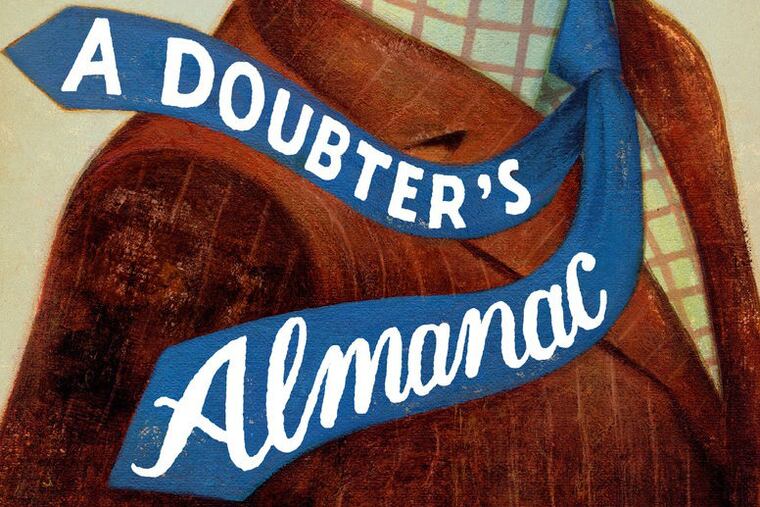'A Doubter's Almanac': Great beginning, the rest less so
Milo Andret is a mathematical genius. After a lonely childhood during the 1950s, he heads to Berkeley to pursue graduate work in topology. While there, he solves the Malosz conjecture (a fictitious problem that seems on a par with Fermat's Last Theorem), which lands him both a position at Princeton and the Fields Medal, the most prestigious award in mathematics.

A Doubter's Almanac
By Ethan Canin
Random House.
558 pp. $28. nolead ends nolead begins
Reviewed by
Kevin Grauke
nolead ends
Milo Andret is a mathematical genius. After a lonely childhood during the 1950s, he heads to Berkeley to pursue graduate work in topology, a field of study that developed out of geometry. While there, he solves the Malosz conjecture (a fictitious problem that seems on par with Fermat's Last Theorem), which lands him both a position at Princeton and the Fields Medal, the most prestigious award in mathematics. Determined to outdo himself, he takes aim at the Abendroth Conjecture (another fictitious problem). He meets with no success. Angry and frustrated, he drinks, womanizes, and makes enemies of everyone, thanks to his arrogance and abusiveness.
So goes Part One of A Doubter's Almanac, Ethan Canin's seventh book, and first since 2008's America, America. Throughout this section, the first third of the novel, Canin paints a captivating portrait of a brilliant, though exasperating, man who is comfortable in the abstract world of "complicated hypothetical shapes that had never before been seen — nor likely imagined — by the human mind" but ill at ease in the workaday world of human interaction.
When Part Two begins, we expect to pick up at some point after Milo seems to have hit bottom, which it does, but not in the way that we might expect. Unlike Part One, which is narrated in third-person, Part Two is presented to us in first-person, decades later, by Milo's adult son, Hans, who reveals that Part One is his own account of Milo's early days. Like his father, Hans is a mathematical marvel, and also like his father, he struggles with addiction. His abilities, however, pale in comparison, as do his addictions, which he fortunately manages to kick (something his father never does).
Unfortunately for us, however, Hans' section of the book pales in comparison, as well. Having lost our access to Milo's distinctive interior life, we are compelled to make due with Hans' comparatively mundane one. Having witnessed the decline of his father's marriage, career, ambition, and health, he strives to avoid the same pitfalls, as well as be a better parent to his children than Milo was to his. Eventually, Hans seeks to achieve a certain degree of peace with his father, as do several others from various periods of the man's life.
Understandably enough, these are the central concerns of the second part of the novel; however, they fail to entrance or gratify, partially because of the rather static nature of the characters involved.
Throughout A Doubter's Almanac, Canin examines the drawbacks of brilliance — for both the brilliant and those who come within their orbit. For Milo, one character notes, there is no "pleasure in the company of friends. There is nothing. Nothing that might assuage the maw. He stands directly in its whirlwind. I've come to believe that this is the consequence of a brain like his." Rather than challenging this romantic and melodramatic observation, Canin upholds it, for the most part, which eventually leaves little to explore with Milo, even for his own son.
While this is frustrating enough, especially coming from a writer as good as Canin, what's still more frustrating is how this novel, which is at least a hundred pages longer than it needs to be, squanders its promise. Like Milo himself, what begins with such potential ends rather feebly.
Kevin Grauke is the author of "Shadows of Men," a collection of stories. He is an associate professor of English at La Salle University.